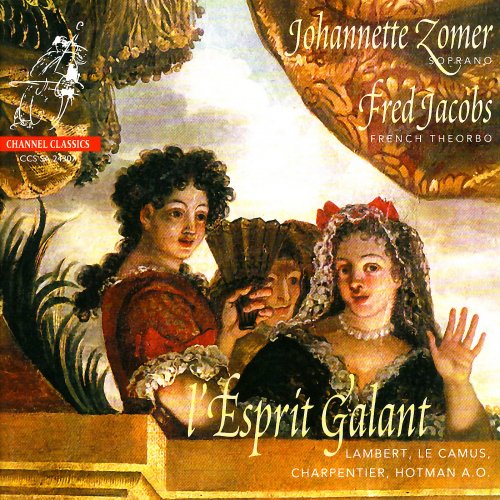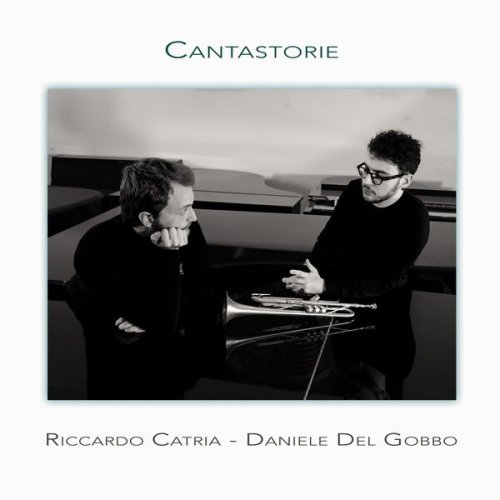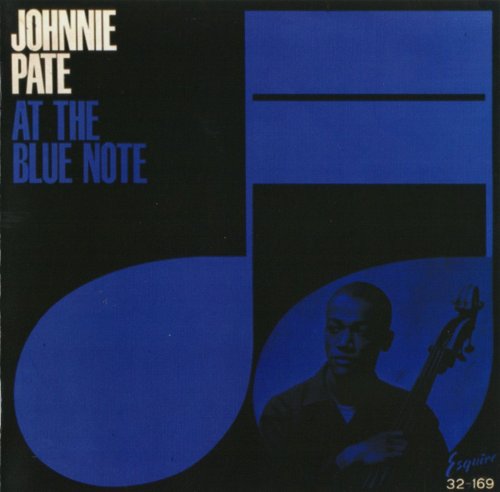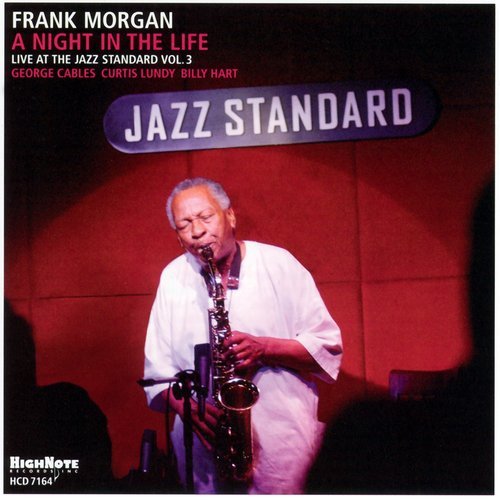Johannette Zomer & Fred Jacobs - L’Esprit Galant (2007) [Hi-Res]

Artist: Johannette Zomer, Fred Jacobs
Title: L’Esprit Galant
Year Of Release: 2007
Label: Channel Classics Records
Genre: Classical
Quality: FLAC (tracks, booklet) [192kHz/24bit]
Total Time: 1:03:03
Total Size: 1.8 GB / 253 MB
WebSite: Album Preview
Tracklist:Title: L’Esprit Galant
Year Of Release: 2007
Label: Channel Classics Records
Genre: Classical
Quality: FLAC (tracks, booklet) [192kHz/24bit]
Total Time: 1:03:03
Total Size: 1.8 GB / 253 MB
WebSite: Album Preview
1. Noires forêts (01:50)
2. Que Servent Tes Conseils (03:18)
3. L'Immortelle (02:05)
4. Me Veux-tu Voir Mourir (02:14)
5. Prélude (01:09)
6. Vous Éprouver Toujours Sévère (00:57)
7. Ombre de Mon Amant (03:46)
8. Sarabande (02:06)
9. Il N'est Point D'amour Sans Peine (01:12)
10. Rochers, Vous Êtes Sourds (04:08)
11. Vos Mépris Chaque Jour (02:09)
12. Pièces de Théorbe In D Minor: I. Allemande (01:50)
13. Pièces de Théorbe In D Minor: II. Courante (01:39)
14. Pièces de Théorbe In D Minor: III. Passacaille (03:00)
15. Forêts Solitaires Et Sombres (02:08)
16. Ah! Fuyons Ce Dangereux Séjour (01:05)
17. Laissez Durer la Nuit (05:17)
18. Qu'une Longue Tiédeur Ennuie (01:18)
19. Amour, Cruel Amour (02:31)
20. Prélude (02:02)
21. La Mascarade (01:38)
22. Chaconne en Rondeau (04:16)
23. Ah! Laissez-moi Rêver, H. 441 (02:50)
24. Celle Qui Fait Tout Mon Tourment, H. 450 (02:05)
25. Ah! Qu'on Est Malheureux, H. 443 (02:00)
26. Ruisseau, Qui Nourrit Dans Ce Bois, H. 466 (02:35)
27. Sans Frayeur Dans Ce Bois, H. 467: Chaconne (01:46)
L’Esprit Galant (Airs by) Boësset, Lambert, Le Camus, and Charpentier Pièces de théorbe by Gautier, Pinel, Hotman, and De Visée. The short and succinct Air sérieux experienced a great flowering in the second half of the 17th century. The audiences of the time loved variety and novelty, in the theatre, the dance, and in music as well. The poetry on which the Air sérieux was based bore the general name of galanterie. ‘Delicate’, ‘cheerful’, ‘sweet’, and ‘light-footed’ (1) were the words associated with galant poets around 1670. The music was similarly referred to: Un air doux et galant En parlant, trouve souvent L’heureux secret de plaire (Jean Sicard, 1679) (2) The characteristics described above, however, apply not only to the text and music, but to the performing style as well. The importance of diction in singing is an important topic in Bénigne de Bacilly’s ‘Remarques curieuses sur l’art de bien chanter’ (1668): he devotes no fewer than 186 pages to the subject. The language used in singing is different than that used in speaking. In order to be expressive, a singer, according to Bacilly, cannot neglect a single syllable. Bacilly uses the term style galant when he speaks of the relationship between expression and lightness. To illustrate this, he makes reference, among others, to the Airs of Michel Lambert, the most important composer of the Air sérieux at that time. Lambert’s Airs, some 330 of them, formed the core of the précieux literary Salons in Paris, inseparably associated with the Esprit Galant which set the tone there. He dedicated the Airs and Doubles (decorated second verses) in his first collection (1660) to Pierre de Niert, ‘Premier valet de Chambre du Roy’, in homage to the latter’s gifts as a singer. Niert owed his belle manière de chanter to a stay in Rome in 1663. The art of singing, as practised in Rome (cf. our CD Splendore di Roma, CCS SA 19903), greatly inspired both Niert and, at a later date, Lambert. Unfortunately, none of Niert’s compositions has survived. Lambert was undoubtedly familiar with the Airs de Cour of Antoine Boësset, a contemporary of De Niert’s, and Louis XIII’s Sur intendant de la Musique. Boësset was fond of the familiar Italian technique of emphasizing the emotional content of certain words by the use of affekt-laden intervals. In 1640, ‘Me veux-tu voir mourir’ won a competition between the rational and the instinctive methods, as applied to the composition of the most expressive possible Air. The ‘Jury’ included the Dutch poet and musician Constantijn Huygens and the French scholar Marin Mersenne, who wrote about Boësset: ‘…ses airs ont je ne sçay quoi de grand et d’heroïque…’ (1640 (3)…
![Steve Kuhn & Karin Krog - Break of Day (2015) [Hi-Res] Steve Kuhn & Karin Krog - Break of Day (2015) [Hi-Res]](https://www.dibpic.com/uploads/posts/2026-02/1770024915_m8pa28e6on0ia_600.jpg)







![Cory Wong - Lost In The Wonder (2026) [Hi-Res] Cory Wong - Lost In The Wonder (2026) [Hi-Res]](https://www.dibpic.com/uploads/posts/2026-02/1770057207_cover.jpg)